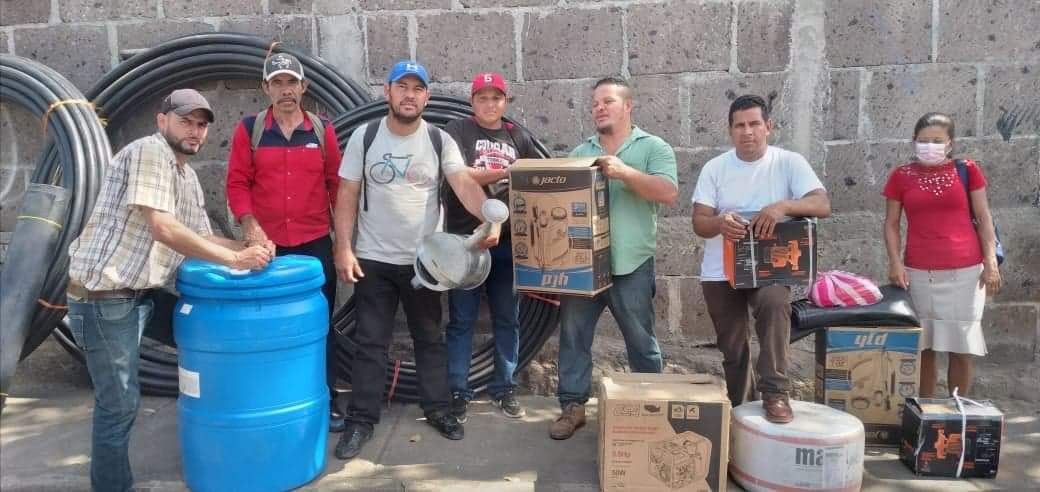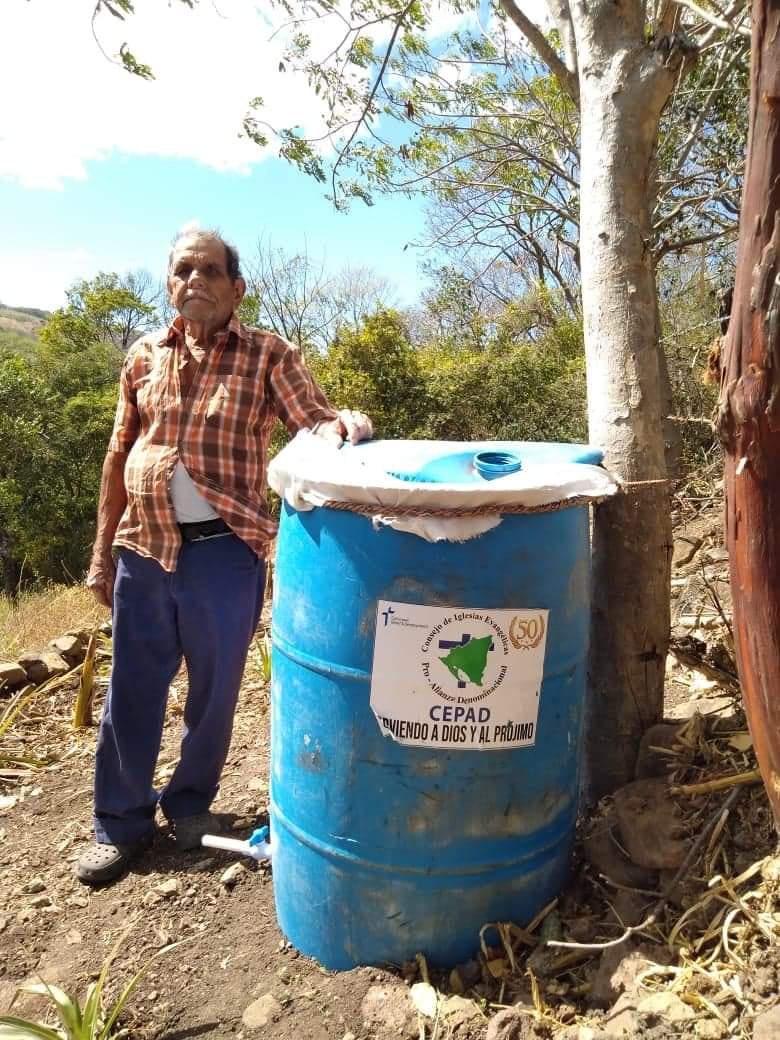A Letter from Jhan Dotel-Vellenga and Ian Vellenga, serving in Nicaragua
Winter 2022
Write to Ian Vellenga
Write to Jhanderys Dotel-Vellenga
Individuals: Give online to E132192 in honor of Ian and Jhanderys Dotel-Vellenga’s ministry
Congregations: Give to D500115 in honor of Ian and Jhanderys Dotel-Vellenga’s ministry
Churches are asked to send donations through your congregation’s normal receiving site (this is usually your presbytery).
Subscribe to our co-worker letters
Dear friends,
As many of you are aware, Nicaragua is one of the poorest countries in the Americas and is presently facing multiple crises. Some areas are struggling with droughts, while others are still suffering from the aftermaths of hurricanes and floods, economic recession, and a public health crisis. Financial insecurity has grown since the pandemic, and unemployment has significantly increased: almost half of the population is under-employed or informally employed, especially in the rural areas.
Globally, NGOs have suffered a lot in the last couple of years. In Nicaragua, deep economic hardships and the political situation led to many of them cutting back on services during the pandemic. In addition to this, there is a new Nicaraguan fiscal transparency law requiring any individual or organization that provides information in any form to the public, and that also receives funds from abroad, to register as a foreign agent, under the penalty of sanctions. Foreign agents under the law must report the monthly income and expenditures and provide the identity of any foreign entity providing funds to the Ministry of Interior prior to receiving or using the money. There is a requirement for a detailed itemized breakdown of the origin of donations they received and who the beneficiaries are.
Many non-profits have suffered under this new transparency law: some were closed, while others were suspended indefinitely. The law controls the activities of individuals and NGOs receiving funds from abroad, which constitutes a restriction of the freedom of associations, a universal fundamental right.
The new legislation is difficult to comply with. It requires more information and new formats in terms of paperwork and filing, which has led to the suspension of many humanitarian programs. Some of the NGOs that have been shut down worked on issues like human rights, health and education, environmental protection, and poverty relief. Others helped advance agriculture, feed children, empower men and women, contribute to the development of communities, and provide clean and potable water through water filters, wells, and other programs.
On December 12, 2018, the National Assembly canceled the legal status of nine NGOs. By August 26, 2021, the legal status of 15 more had been canceled and many more had been closed or suspended since then, leaving only a few still operational. NGOs often enhance areas of life that have only been superficially organized previously, like community associations and leadership. NGOs play a key role as facilitator of community improvement and development, strengthening the relationships of trust and reciprocity that already exist in many communities. They are usually independent from the government and work to promote the wellbeing of everyone in society.CEPAD is one of the few remaining NGO’s that is still open and legally functioning in Nicaragua, and it is also one of the oldest. This year CEPAD is honoring its 50th Anniversary of existence with a year-long celebration. Since its beginning, CEPAD has focused on attending to the needs of the people of Nicaragua and the advancement of communities. With programs in agriculture, education, environment, family, and clean water, helping to start small scale farming projects such as community gardens and family gardens, providing small loans and much more. CEPAD also understands the importance of development programs that build the community from the inside. Peaceful and strong family structures and united communities are central in Nicaragua and some of the main areas of CEPAD’s work.
CEPAD continues to support family integrity and development via social programs and faith-based initiatives. It also continues to help by providing health kits to prevent the spreading of COVID-19. It is also facilitating access to clean water systems, especially after the hurricanes. It has helped individuals and communities that were left with compromised living conditions by providing food packages, roof material, trauma workshops, and seeds to plant lost crops.
Some governments don’t like NGOs. They often keep politicians accountable; help organize people through petitions and peaceful protests and provide information about how well or poorly a country is handling certain situations. They help educate the public about what the government is doing and how it affects them by keeping people informed, which helps them make knowledgeable decisions.
With all the social, economic, and environmental issues Nicaragua currently faces, CEPAD’s work is more important than ever. With non-profits and NGOs being decommissioned, remaining groups like CEPAD are left to fill in the vacuum. Thousands of people and families have already been helped by CEPAD, and with your continued support, thousands more will be in the future.
If you would like to support CEPAD’s 50th Anniversary celebration by getting involved in the preparations of some of the events, or would like more detailed information about the activities that would take place during the year, click on the following link:
https://cepadnica.org/50th-anniversary-celebration/
Thank you for all you do to support our organization. We, at CEPAD, are humbled and forever grateful for your support.
Jhan and Ian
![]() You may freely reuse and distribute this article in its entirety for non-commercial purposes in any medium. Please include author attribution, photography credits, and a link to the original article. This work is licensed under a Creative Commons Attribution-NonCommercial-NoDeratives 4.0 International License.
You may freely reuse and distribute this article in its entirety for non-commercial purposes in any medium. Please include author attribution, photography credits, and a link to the original article. This work is licensed under a Creative Commons Attribution-NonCommercial-NoDeratives 4.0 International License.



